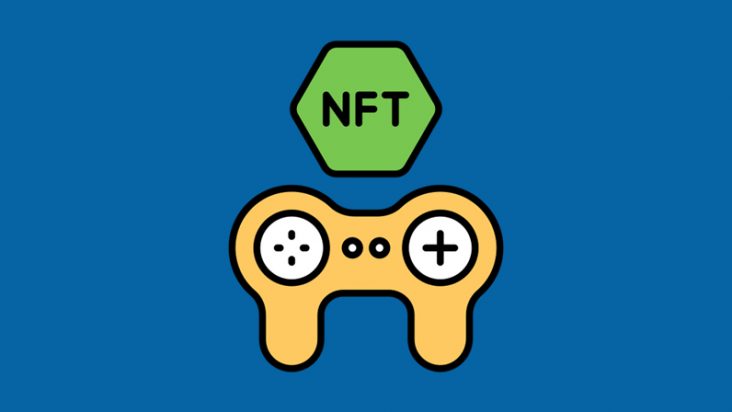

The iGaming industry operates in a highly regulated environment, requiring a strong commitment to ethical practices, particularly in marketing. Ensuring responsible advertising, monitoring affiliate campaigns, and promoting responsible gambling are essential to maintaining trust and compliance. Below, we explore these aspects in detail and highlight case studies of successful ethical marketing campaigns.
Casino Operator Regulatory Requirements
Previously, it must be said about the regulatory requirements which focus on responsible gambling. Casino operators, including those holding licenses such as from Curaçao, must adhere strictly to responsible gambling standards. Deviations from these standards or outright violations can result in administrative penalties, including the potential revocation of their license in severe cases.
Key requirements include:
- Creating a comprehensive “Responsible Gambling” section with detailed information and resources;
- Monitoring player behavior, such as tracking the duration of site usage;
- Implementing tools to limit player activity, such as deposit limits and session time restrictions;
- Enabling self-exclusion mechanisms to allow players to restrict their own access.
Responsible Advertising Practices
Responsible advertising in iGaming focuses on avoiding misleading or aggressive messaging that may exploit vulnerable individuals. Ethical advertising practices include:
- Truthful Messaging: All promotional content must accurately represent the products and services offered, avoiding exaggerations or deceptive claims.
- Target Audience: Advertisements should be directed at adult audiences only and avoid targeting minors or individuals with gambling addictions.
- Transparency: Terms and conditions, including wagering requirements, must be clearly disclosed in marketing materials.
- Avoiding Aggression: High-pressure tactics, such as urgent calls to action or fear-based messaging, should be strictly avoided.
Moreover, there is a big challenge for Igaming operators to balance between successesful advertising, responsible gaming practices and regulation. Ethical marketing practices emphasize transparency, honesty, and consumer empowerment, focusing on presenting gambling as entertainment rather than financial gain. Prominent disclaimers and self-regulation tools, such as deposit limits and session timers, encourage responsible gambling and normalize moderation in advertising campaigns.
Regulatory oversight is vital to safeguarding consumers, with governments implementing measures to restrict harmful advertising practices. Examples include the UK’s whistle-to-whistle ban during live sports and Australia’s strict guidelines to prevent targeting minors or at-risk individuals. Such regulations ensure marketing remains effective without exploiting vulnerable groups.
Public awareness and education complement these efforts by empowering consumers to recognize risks and make informed decisions. Campaigns like “Betting Limits Are Your Best Bet” and programs like GAMSTOP highlight practical tools for managing gambling habits. By addressing psychological tactics in advertising, public education fosters resilience against manipulative marketing, creating a safer and more balanced industry environment.
Monitoring Affiliate Marketing Campaigns
Affiliate marketing is a cornerstone of iGaming promotions, but it comes with unique ethical challenges. Operators must ensure affiliates adhere to ethical standards, as their actions directly impact the brand’s reputation.
- Setting Ethical Guidelines: Clear policies outlining acceptable and unacceptable marketing practices are essential. These guidelines should cover content accuracy, audience targeting, and adherence to responsible gambling principles.
- Providing Tools for Affiliates: Operators can support affiliates by offering tools and resources to promote responsible gambling. For example:
- Dynamic banners that adapt messaging to promote limits on deposits or playing time.
- Educational content for affiliates to include on their platforms, informing players about responsible gambling measures.
- Regular Monitoring: A robust monitoring system ensures affiliates comply with established ethical standards. Automated tools can flag inappropriate content, while manual reviews provide a deeper analysis of campaign performance.
By maintaining oversight, operators can mitigate risks and uphold their ethical responsibilities.
Case Studies: Ethical Marketing Campaigns in iGaming
Several B2B providers have demonstrated leadership in ethical marketing by implementing innovative and responsible campaigns. Here are two notable examples:
- NetEnt’s Responsible Gaming Campaign:
NetEnt, a leading iGaming software provider, launched a campaign promoting responsible gaming by integrating customizable tools into its platforms. These tools included self-exclusion options and deposit limit settings, which were prominently featured in marketing materials. This approach reinforced NetEnt’s commitment to player safety and helped operators meet regulatory requirements.
- Playtech’s Sustainable Gambling Initiative:
Playtech has established itself as a leader in responsible gaming through innovative technology, robust research, and collaboration with stakeholders. Its comprehensive approach demonstrates a successful implementation of responsible gambling principles, setting industry standards and prioritizing customer safety.
BetBuddy: At the forefront of Playtech’s safer gambling initiatives is BetBuddy, an AI-powered tool that utilizes behavioral monitoring and predictive risk modeling to identify problematic gambling behaviors early. By integrating automated nudging tools, BetBuddy proactively guides users toward safer gambling habits, showcasing the effective use of technology to promote player well-being.
Commitment to Research and Collaboration: Playtech’s extensive safer gambling research program focuses on understanding how its products and services can support responsible gaming. The company has shared insights on critical topics such as product risk, bonus offers, risk identification, and AI accountability. By partnering with academic, industry, and charitable organizations, Playtech fosters collaboration to advance safer gambling education, research, and treatment on a global scale.
Certifications and Industry Standards: Playtech’s commitment to responsible gaming is further evidenced by its adherence to high industry standards:
- GamCare B2B Safer Gambling Standard: Playtech became the first company to achieve this independent UK certification in 2021, recognizing the quality of its customer protection controls.
- G4 International Certification: In 2023, Playtech’s Snaitech Group renewed its G4 accreditation, confirming compliance with the highest global standards in responsible online gambling.
Conclusion
The integration of responsible gaming tools has had a notable impact on the iGaming industry, promoting safer gambling behaviors and protecting vulnerable individuals. Tools like deposit limits, session timers, and self-exclusion options empower players to manage their activities more effectively. Initiatives like BetBuddy, which leverage AI to detect problematic behavior early, demonstrate the potential for technology to safeguard users proactively.
However, the effectiveness of these tools largely depends on their accessibility, visibility, and the willingness of players to use them. While many consumers benefit from these features, others may disregard or bypass them, highlighting the need for ongoing innovation and education to increase their adoption and effectiveness.
Furthermore, collaboration between operators, regulators, and stakeholders ensures these tools are continuously improved and supported by ethical marketing and public awareness campaigns. While responsible gaming tools are not a cure-all, they play a critical role in fostering a safer and more balanced gambling environment, proving their value as part of a broader commitment to consumer protection.








